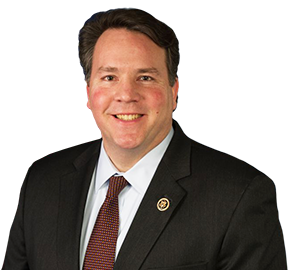Opioid prescribing act enacted
MARTINSBURG – A bill known as the Promoting Responsible Opioid Prescribing (PROP) Act, which was introduced by U.S. Rep. Alex Mooney, R-W.Va., earlier this year, has been enacted as law in West Virginia.
The bill removes reimbursements from pain-management questions.
Before the bill was implemented, a standardized survey known as the "Hospital Consumer Survey of Healthcare Providers and Systems" developed by the Centers for Medicare and Medicaid Services and the Department of Health and Human Services was meant to measure a patient's satisfaction with the care received while at the hospital.
Although the survey was created in 2006 and surveys were used on an optional basis, "pay for performance" provisions in the Affordable Care Act stated that the surveys would be used to calculate incentive payments or payment reductions depending on survey results.
Mooney said the provisions created a scenario which pressured medical professionals to prescribe pain medication in order to receive incentive payment or reduction in payment.
Now, Mooney says the elimination of the provisions is just the beginning of similar bills aiding in the fight against the drug epidemic plaguing the nation.
"This is just one step, one important reform that is needed. Now that it's done, there are a lot of other important angles to attack this epidemic," Mooney said in a Friday telephone interview. "As a result (of the implementation), doctors are more empowered not to give prescription drugs to people who may not need them, and therefore help people avoid become addicted to drugs."
Although Mooney said he expects the elimination of the provisions to help reduce the drug problem, he can't be sure this early in its implementation.
"It's difficult to prove when something doesn't happen, why it doesn't happen, it's difficult to quantify, but I'm hoping we can look at the number of overdoses and take some measurements in future years to see whether these approaches are making an overall difference," Mooney said.
While Mooney introduced the bill, he said the idea was brought to him, and it is an example of government at work.
"I really like to emphasize that this is such a great example of how the political process does work. Here's a perfect example where doctors brought this concern to me, I researched it and I realized they had a legitimate concern," Mooney said. "I wanted to help resolve it, and it was worked through the legislative process. This just shows that it does make a difference when you bring good ideas to your elected officials."
The survey consists of three questions concerning pain and medication. The first asks, "During this hospital stay, did you need medicine for pain?" The second reads, "During this hospital stay, how often was your pain well controlled?" The third asks, "During this hospital stay, how often did the hospital staff do everything they could to help you with your pain?"
Although the PROP Act does not eliminate the survey or its usage, it does remove ties between survey results and payment.
Staff writer Emily Daniels can be reached at 304-263-8931, ext. 132, or twitter.com/emilykdaniels.

